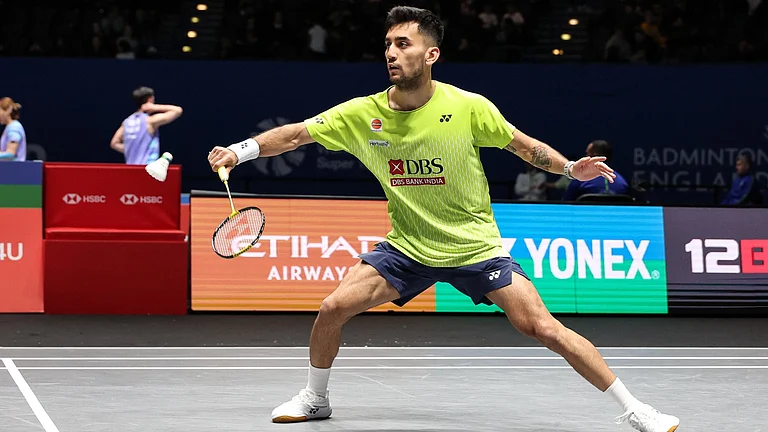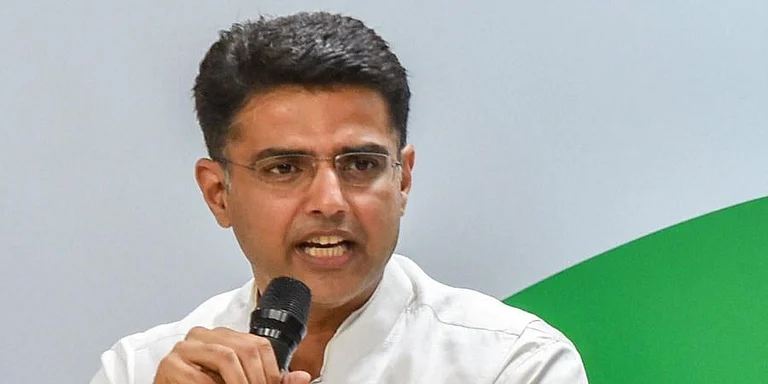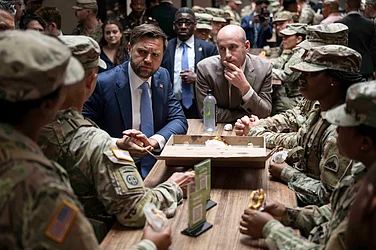Episode 4 of Fifa Uncovered, the Netflix eye-opener on the crooked ways of football’s governing body, makes for tough viewing.
At one point, the camera cuts from a lavish Fifa gala in Budapest—suits, gowns, watches, and all the markers of Western elitism—to burning funeral pyres in Nepal. Soon after, there is the heart-breaking footage of a young Nepali woman waiting outside the airport, blankly staring towards the passenger exit.
“Outside arrivals, this woman waits for her husband,” the voiceover says. “It will not be a joyous reunion… when he left for Qatar six months ago, she was his wife. Today she is his widow.” The moment of truth arrives. A red coffin is wheeled in, placed horizontally across two trolleys. The woman breaks down. Then another coffin arrives. This one is yellow.
Thousands of Nepali left their country and found work on World Cup-related construction projects in Qatar, after the country was curiously awarded the rights to host the tournament in 2010, despite having no history of footballing performance or culture. According to some reports, at least 2,100 of them died, most likely due to health complications from working and living in punishing conditions.
Fifa Uncovered exposes the gap between the organisation’s claims about the upkeep of workers and the harsh reality with a juxtaposition of visuals. Interspersed with the footage of bodies arriving in Nepal are shots of Sepp Blatter, the disgraced former Fifa President, making tall claims about improvements in the way workers are treated.
“Because the World Cup is on, the workers will now have better conditions, not only in Qatar, but in all the Arabic countries,” Blatter is shown saying in a press conference. Then he washes his hands off any formal responsibility towards them. “But in no way can Fifa accept to be responsible for the welfare of the workers,” Blatter says. “They belong to commercial and industrial companies of other countries.”
Such is the weight of the sheer data about the exploitation of labourers in Qatar in the last decade or so, that the World Cup’s key functionary, Hassan Al Thawadi, has no option but to admit to some lapses. “When we started off the situation was horrendous,” he says in the documentary. “But one of the legacy objectives of this country is reforming the working conditions and the labor reforms in this country. We have the desire to fix it. It’s not a PR stunt.”
If that is indeed true, it is too late for those who met their end in the heat and dust of the tiny Gulf nation. The tragedy of worker deaths impacted Nepali people the world over. On Sunday, according to The Crimson, Harvard University’s student publication, students from Nepal organised a candle-lit vigil to pay respects to the workers on campus.
Kashish Bastola, one of the organisers, told the publication that the World Cup “brings the world together” but is built on “human rights violations and abuses". He adds: “There have been similar human rights violations and abuses that FIFA has tried to address through their human rights advisory board, but obviously nothing has happened. Nothing has changed.”
Ang Sonam Sherpa, a student from Nepal, in fact said that the entire South Asian community at Harvard supported the vigil. The Harvard Saudi Student Association, Harvard College Pakistani Student Association and Harvard Ghungroo were among the student bodies that supported the vigil. “It’s not really limited to the Nepali community at all,” Sherpa said. “We have reached out to the wider South Asian community, and all the responses have been incredible.”
Bastola added, “There’s relatively few of us on campus in the first place. We all already know each other but organising and working to bring awareness to this issue has brought us, I would say, even closer and in very meaningful ways.”






















